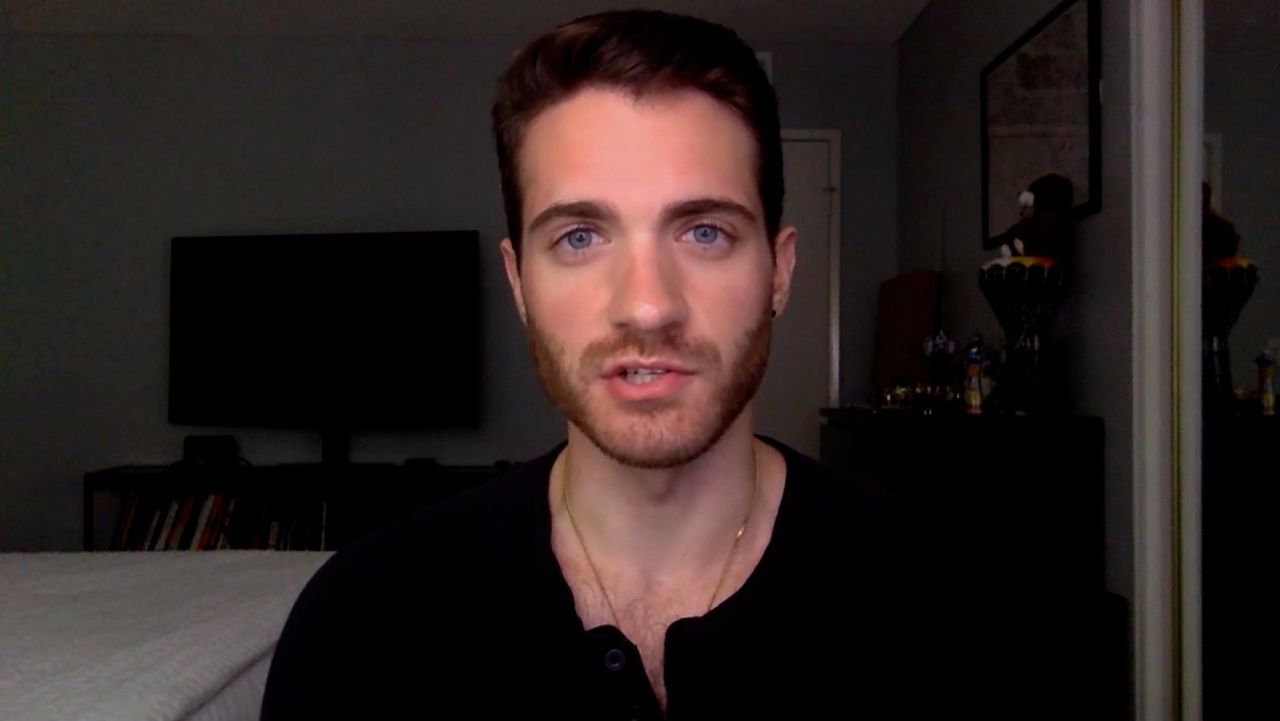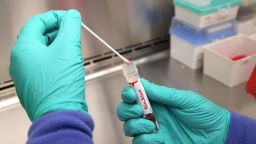After weeks of mounting frustration over limited supplies of monkeypox vaccines, about 786,000 additional doses are being made available in the United States, the US Department of Health and Human Services announced on Wednesday.
The US Food and Drug Administration said Jynneos monkeypox vaccine doses filled and finished at a Denmark manufacturing facility meet the agency’s quality standards and it has approved a supplement to the vaccine’s biologics license. Doses that were previously manufactured at the facility had already been shipped to the United States, so the FDA action clears the way for doses to be distributed and administered.
“HHS is working to make these doses available to states and jurisdictions as soon as possible to fulfill their needs and will announce allocations tomorrow,” US Health and Human Services Secretary Xavier Becerra said in a statement.
The US Centers for Disease Control and Prevention estimates that more than 1.5 million men who have sex with men are currently eligible to receive the monkeypox vaccine. But as of July 22, 310,385 doses of the vaccine have been delivered.
As monkeypox spread – more than 3,500 cases have been confirmed in the United States so far – vaccine appointments around the country have been snapped up quickly and long lines have formed at clinics offering the shots.
FDA and HHS officials said Wednesday they expedited inspection of the monkeypox vaccine facility in Denmark in response to the outbreak, and more vaccines are still to come. HHS anticipates making around 1.9 million doses available in 2022 with an additional 2.2 million doses made available in the first half of 2023.
Bavarian Nordic, the company that manufactures the Jynneos vaccine, said in a statement that drug production was also approved by EU regulators and the company “is now allowed to deliver drug product manufactured at its own site to the U.S. and EU market.”
Who’s eligible to be vaccinated
The two-dose Jynneos vaccine is available for people at high risk of monkeypox exposure: those who have been identified as close contacts of someone who has been diagnosed with monkeypox, those who have had sex with a partner diagnosed with monkeypox within the past 14 days, and those who have had multiple sex partners in the past 14 days in an area with monkeypox spread, according to the CDC.
The vaccine helps protect against monkeypox when given before or shortly after an exposure. Dr. Anthony Fauci, director of the National Institute of Allergy and Infectious Diseases, said on CNN’s New Day on Tuesday that the US needs to shift its monkeypox vaccine strategy to reach more people at risk of infection, rather than responding to monkeypox exposures.
“It’s very clear with the spread of this that there now has to be a balance between vaccines available for those who clearly have been exposed, as well as those at risk,” Fauci said.
“What you want to do is a balance between vaccinating those who clearly have had an exposure, but go well beyond that.”
Anyone can become ill from monkeypox, but the CDC says that more than 99% of monkeypox cases in the US have been among men who have sex with men. Monkeypox is not a sexually transmitted disease, but it can transmit though close, skin-on-skin physical contact, or from objects like sheets or towels that may have been used by somebody with monkeypox.
Get CNN Health's weekly newsletter
Sign up here to get The Results Are In with Dr. Sanjay Gupta every Tuesday from the CNN Health team.
Symptoms usually start within three weeks of exposure to the monkeypox virus and last two to four weeks. The virus typically triggers a rash with lesions that can be extremely painful.
Fauci said Tuesday that he doesn’t think the entire population needs to be vaccinated against monkeypox, although “obviously, you’ll leave the door open for any possibility” if monkeypox spreads more widely.
CNN’s Naomi Thomas, Brenda Goodman, Jen Christensen and John Bonifield contributed to this report.





